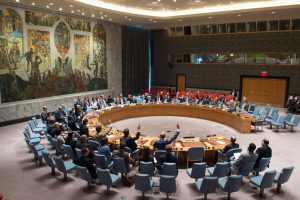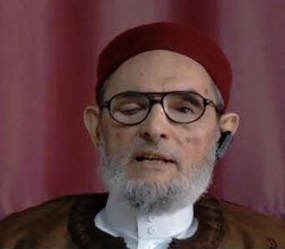By Hadi Fornaji.

Tunis, 14 June 2016:
Following yesterday’s decision by the United Nations Security Council to extend the mandate of the UN Support Mission in Libya (UNSMIL), it voted today to allow the EU’s joint naval Operation Sophia to stop and search vessels in the Mediterranean suspected of transporting illegal weapons.
The vote on the British-drafted motion was unanimous.
Until now Operation Sophia vessels were limited by the UN to stopping and seizing boats involved in people-smuggling. Under this expansion of Operation Sophia’s role, its ships are now empowered to halt the flow of illegal weapons on the high seas off Libya.
In the aftermath of the 2011 revolution, large amounts of weapons from Libya flowed out of the country. More recently, the flow has been the other way around, with weapons and ammunition arriving in Libya and stoking the violence in the country. The resolution drew attention to this, noting that “arms and related materiel are being used by terrorist groups operating in Libya, including ISIL (the Islamic State).”
Last week, UN Special Envoy Martin Kobler told the Security Council that there were around 20 million assorted pieces of weaponry in the country.
“These weapons do not fall from the sky, but come increasingly through illegal shipments by sea and by land. The arms fuel the conflict. These shipments must end if there is any serious hope of bringing peace to Libya,” he said.
The Security Council’s current president, French Ambassador Francois Delattre, said Resolution 2292 had “the potential to be a game-changer.”
Finally, he said, the international community would have the means to enforce the arms embargo in Libya. “In doing so, we will be better equipped to fight against” the Islamic State.
The resolution has been welcomed by Federica Mogherini, the EU’s foreign policy chief, who said that as of now, Operation Sophia would now be able to play an important role in implementing the UN arms embargo on Libya.
Last month EU foreign minister committed themselves to the expansion of Operation Sophia. They will again meet in Brussels next Monday to agree the final changes.







